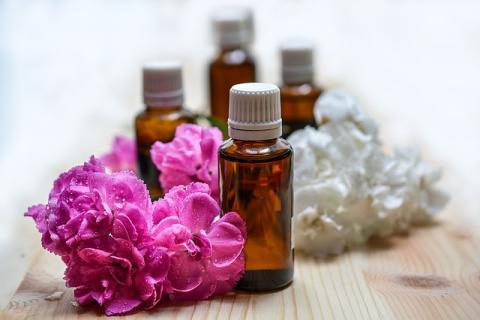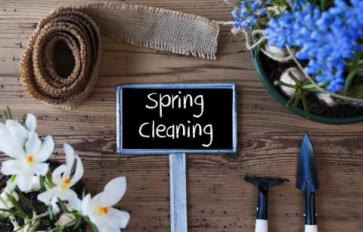
Essential oils and plant extracts have become increasingly popular in recent years, but health practitioners have been using essential oils for millennia. Health, beauty, aromatherapy, cleaning, and cleansing are some of their uses. Essential oils also have mental, physical, and spiritual benefits as well.
The average shelf life for essential oils is around 3 years, but some may last longer.
Essential oils are highly concentrated plant extracts. They are considered to be volatile oils, ethereal oils, and aetherolas. The word volatile is defined as easily evaporated at normal temperatures. Volatile oils are so concentrated they have to be mixed with carrier oils. Some oils can be too strong to put directly on the skin and may cause irritation.
Carrier Oils are used to dilute essential oils and keep the essential oils from evaporating too quickly. Using a carrier oil will not affect the potency of the essential oils in any way.
- Coconut oil is good for moisturizing but it leaves an oily layer on the surface. Fractionated Coconut Oil absorbs well and leaves behind a silky moisturized, non-greasy feeling.
- Vegetable oil
- Grape seed oil is a great carrier oil to use when mixing oils intended for massage.
- Olive oil provides a healthy amount of omega fatty acids and is a good carrier for healing oils. It should be stored in cool, dry place to extend its shelf life, but be sure to check for signs of olive oil gone bad before using it internally or externally.
- Jojoba oil makes a great carrier when using the oil for skin and hair moisturizers.
While all the oils on this list are great carrier oils, I prefer coconut or olive oil depending on the purpose. NEVER USE butter, shortening or margarine as they are not meant to be absorbed into the skin. The different carrier oils have different qualities about them.
How Essential Oils Are Extracted
Essential oils are extracted from plants either by some form of Distillation or Cold Pressing/Expression. There are 3 main types of distillation:
1: Water Distillation
2: Steam Distillation
3: Water & Steam Distillation
It is best to distil flowers using the water distillation process, since the steam process causes the flowers to stick together, making it hard for the essential oils to freely escape. Steam distillation is one of the most commonly used methods.
Cold Pressing or Expression is a method used for extracting various citrus oils. Using the cold press will keep the aroma of the extracts strong and vibrant. You can extract citrus oils, such as lemon, orange, and bergamot, using a distillation process but you will lose the pungent aroma.
Using Essential Oils
Now that we know what they are and how they are created, let's talk about some of the many uses for a few of my favorites!
- Lavender – I use this more than anything for aromatherapy. It has wonderful calming, sedative properties and is one of the safest oils. It's great for using on kids.
- Tea Tree (common) – I like to dilute this and spray it on before going on hikes; it keeps the bugs at bay. It is a great antimicrobial and anti-bacterial. It can also be used for treating chickenpox, cold sores, cuts and insect bites. Mosquitoes and ticks hate it.
- Eucalyptus – This is awesome to have during cold and flu season, as it acts as a decongestant and strengthens the immune system. It makes an amazing steam treatment. You can add a few drops into a steamy bathtub and soak to help with aches and pains. Eucalyptus also can be used in aromatherapy for depression, and it serves as an anti-inflammatory.
- Patchouli – Patchouli has such an earthy smell and feel, so it goes good in an oil warmer for grounding and meditation. You can use it for dandruff, healing wounds, scar reduction, aromatherapy, pms symptoms and as an aphrodisiac.
- Frankincense – Frankincense is an instant stress-be-gone. You can use it in skin care products, as an anti-inflammatory, as a steam treatment to help with cough and congestion, and to help with depression. It's especially great for balancing emotions during the dark months of autumn and winter.
- Sandalwood – This is one of my go-to oils as it has many physical and spiritual applications. It has anti-viral, antibacterial, anti-inflammatory and anti-fungal properties. It can also be used as an expectorant and as an aphrodisiac.
- Star Anise – I use this oil in my baking and cooking. Not only is it great to cook with but it is also a decongestant, an expectorant, an antiseptic, a safe insecticide, and an all-natural treatment for lice.
- Blue Tansy – Blue tansy, not to be confused with common tansy, is very hard to come by – and if you find it, make sure it is from a reputable source as the plants are complicated and require a level of expertise. It is an anti-bacterial, anti-inflammatory, antihistamine, anti-fungal and anti-allergen.
- Tansy – This oil is great for taking care of fleas, mosquitoes, and other pests. It can also be used to treat various parasites. Both version of tansy should be used topically and sparingly.
I could go on and on about oils for days; there are just so many of them and they serve so many purposes. I have yet to find one oil that isn't multipurpose. Essential oils are the miracle essences of plants: they are used for medicine, cooking, massage, aromatherapy, whole-body wellness and so much more. They cover mental, physical, and emotional wellness, as well as spiritual wellbeing.








